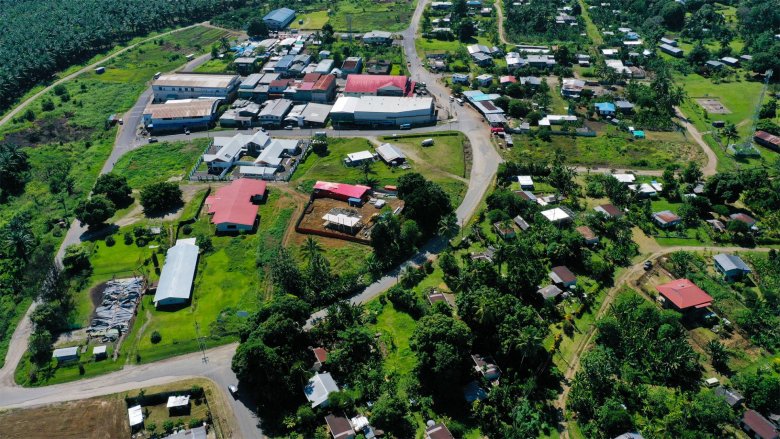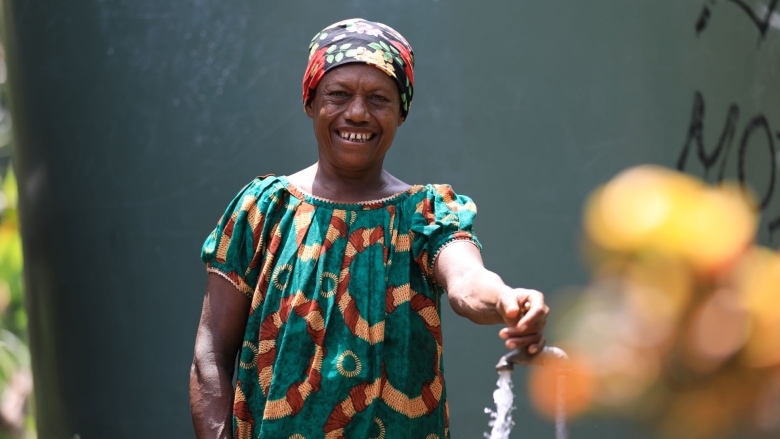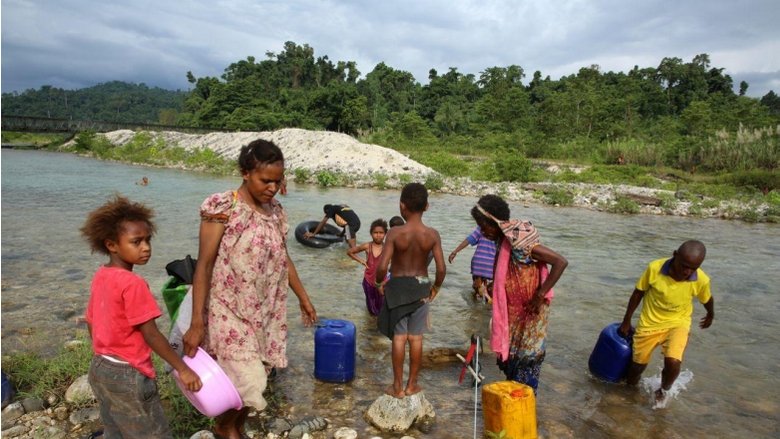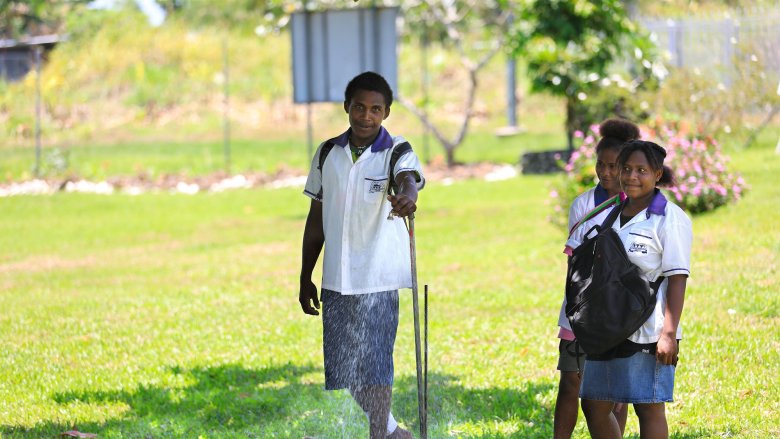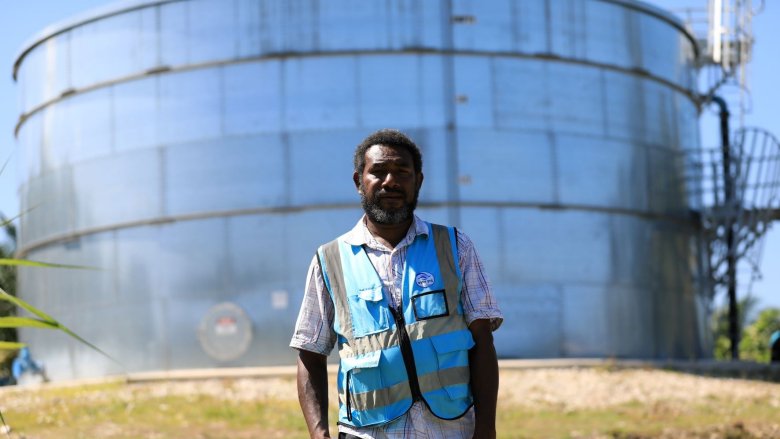Yet today, driving into the township, the formerly-common sight of the main road filled with women, and children of school age, carrying huge water containers making the strenuous journey to the closest fresh water source – the Tiauru River – to collect water is no more.
At the local Maimoli Health Center, plenty of infrastructure is still in need of repair, but the water taps that for years sat idle are now gushing out clean running water, when the tap is turned.
“The positive impact on the health front has been tremendous,” says James Managen, Officer in Charge of the health center for the past two decades. “We have seen a major decrease in water-borne diseases among patients and a big improvement to the general hygiene of staff and patients at the center since the new water supply system was installed.”
It is the same story at the local school, home to more than 700 students.
“Two years back, we would close the school for days due to the school’s rainwater catchments running dry,” says Mr. Obert Sau, the deputy head teacher. “Dry seasons in Bialla also meant students – particularly girls – missed school frequently to help with house chores; especially fetching water for their families. Our dropout rate for students was high, and access to a basic right like clean running water was a key factor disrupting their education.
“Now, we’re heading into the dry season again, but as you can see, all of our classrooms are full of students.”
